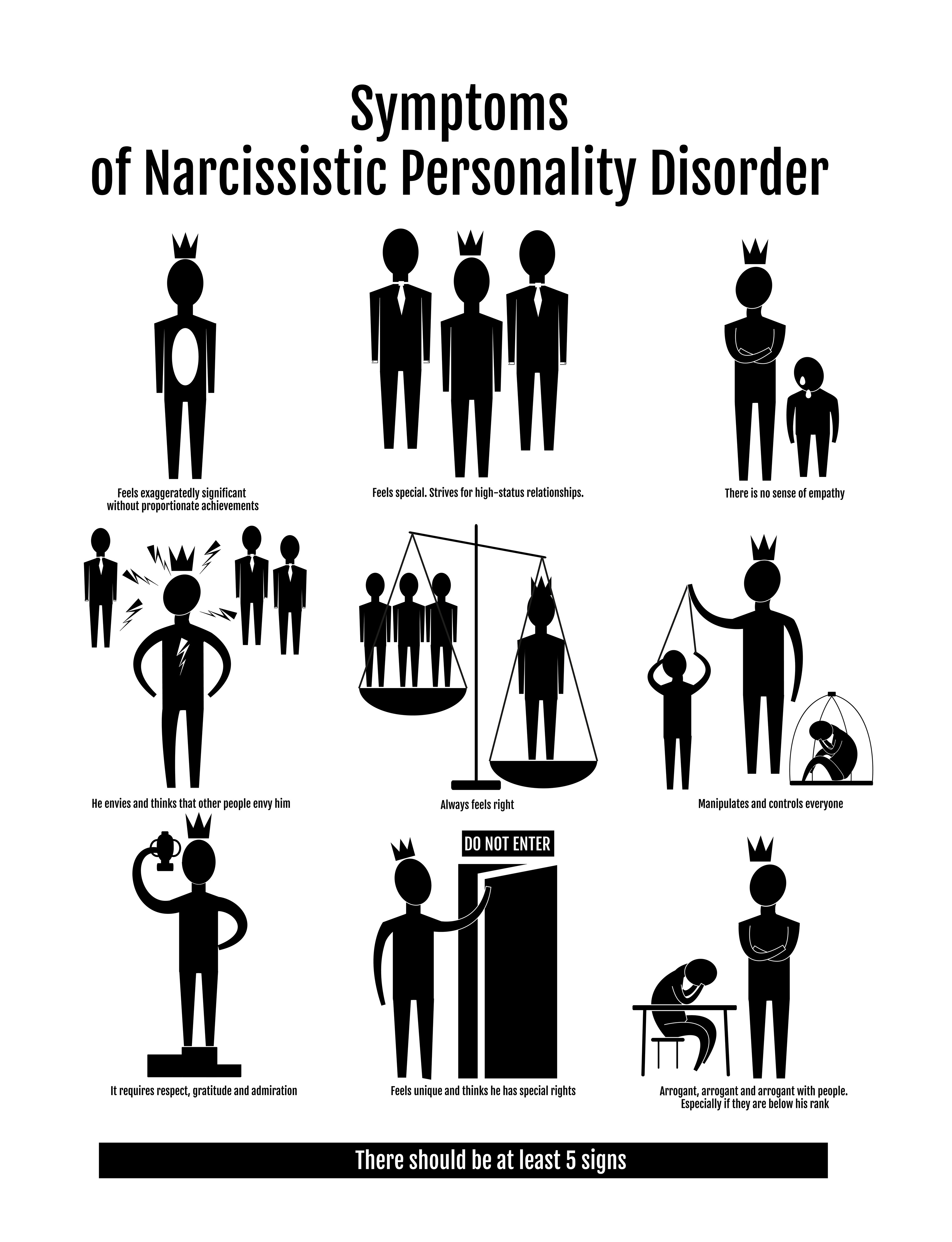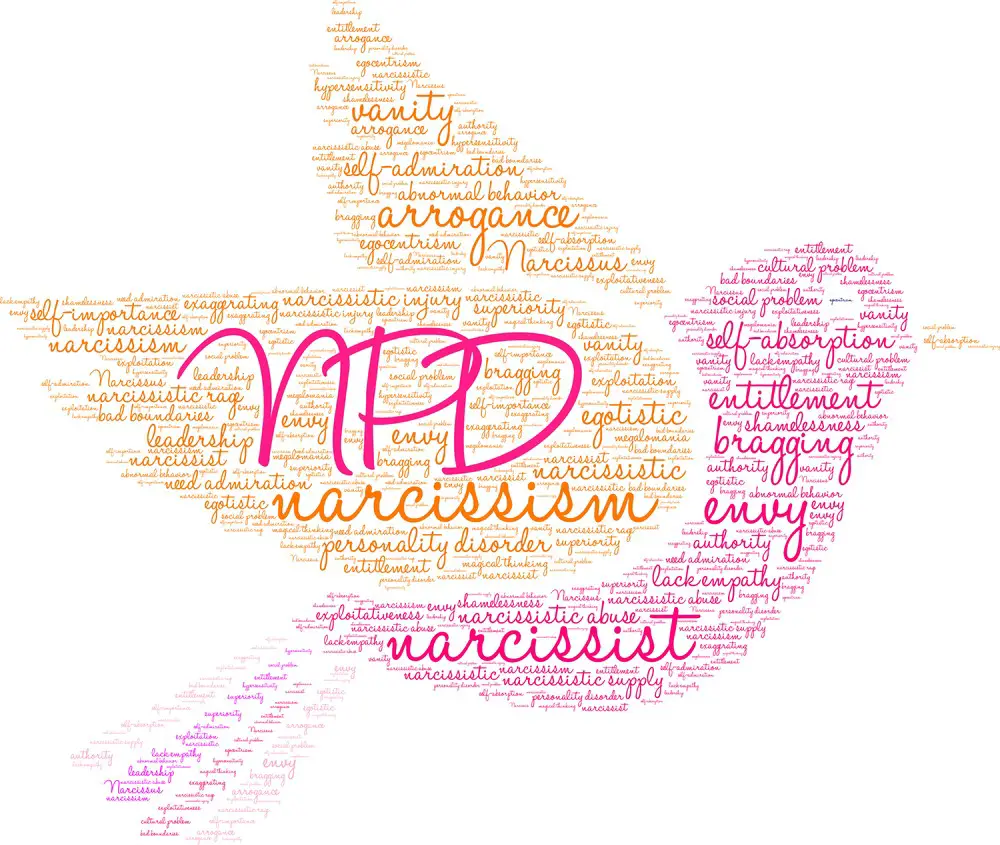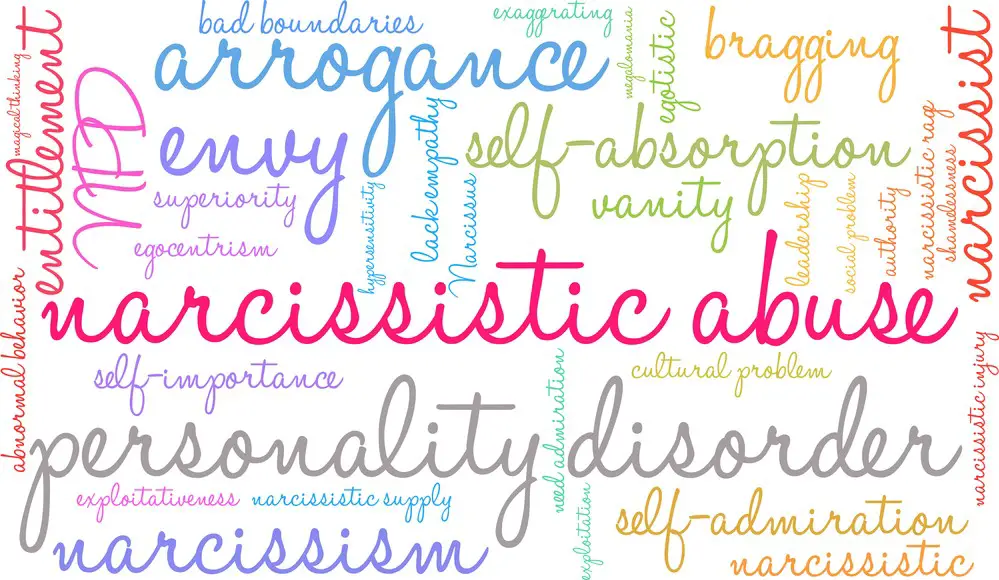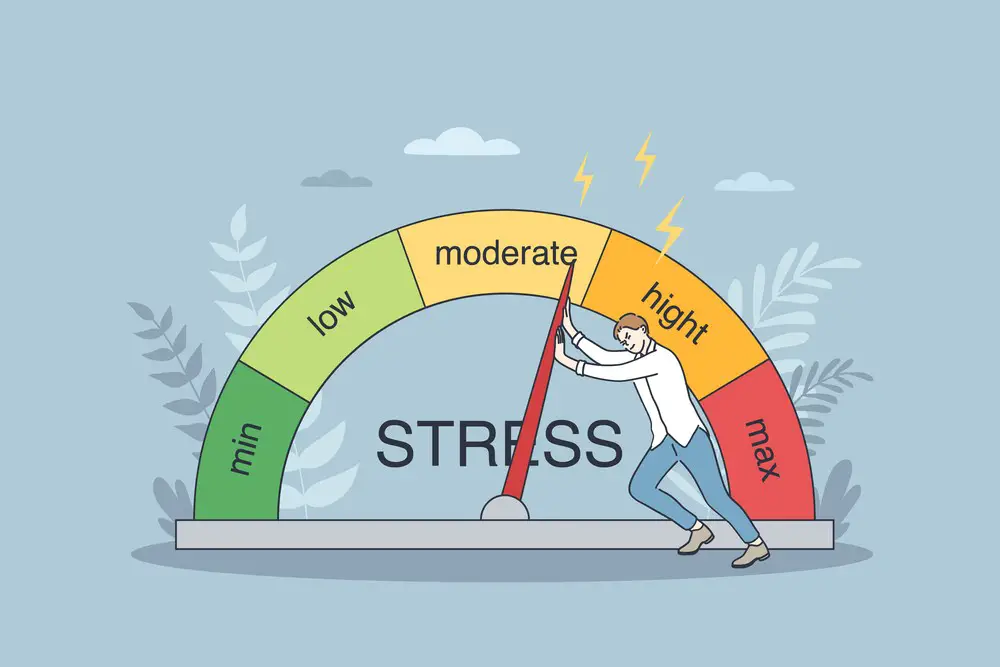As a BetterHelp affiliate, we receive compensation from BetterHelp if you purchase products or services through the links provided
Navigating the world of friendships can be challenging, especially when entangled with a narcissist. Narcissists possess captivating personalities that often draw people in but can also inflict emotional turmoil on those close to them. It is essential to identify the signs of a narcissistic friend to understand the dynamics at play and protect one’s emotional well-being.
Understanding the traits of a narcissist is the first step in recognizing their behavior in a friendship. People with narcissistic tendencies often lack empathy, crave admiration, and have an inflated sense of self-importance. Awareness of these characteristics and how they manifest in interactions is crucial in deciphering whether a friend exhibits narcissistic qualities. Assessing such patterns can help one take appropriate action and develop strategies for coping with the complexities of the friendship.
Key Takeaways
- Identifying narcissistic traits in friends is critical for emotional well-being.
- Recognizing patterns in interactions can help detect narcissistic tendencies.
- Knowledge of these signs enables appropriate coping strategies
 Understanding Narcissism
Understanding Narcissism
Narcissism is a term that references a personality trait found in individuals who demonstrate an excessive admiration of themselves, a strong need for admiration, and a lack of empathy for others. Narcissistic Personality Disorder (NPD) is a more severe form of narcissism and is classified as a personality disorder.
NPD is included in the Diagnostic and Statistical Manual of Mental Disorders, Fifth Edition (DSM-5), and it is identified when an individual displays a persistent pattern of grandiose self-importance, feelings of entitlement, and excessive dependence on validation from others. It’s crucial to differentiate between narcissistic traits and NPD, as the latter indicates a severe and unhealthy manifestation of self-focus.
Narcissistic personality traits can arise from one’s upbringing. Childhood experiences such as excessive pampering, extreme criticism, or a lack of parental warmth or nurturing can cause individuals to develop distorted perceptions of themselves. Over time, these perceptions may result in a sense of entitlement and an inflated ego.
Some common qualities associated with narcissism and NPD include:
- A constant need for attention and admiration
- Exaggeration of their abilities or achievements
- A sense of superiority, often accompanied by belittling or devaluing others
- Difficulty experiencing empathy or compassion for others
- A tendency to exploit or manipulate others for personal gain
Recognizing these traits can facilitate an understanding of narcissistic behavior and its impact on interpersonal relationships. As knowledge of narcissism and NPD develops, individuals can navigate interactions with those exhibiting these traits and foster healthier relationships.
 Common Signs of a Narcissist Friend
Common Signs of a Narcissist Friend
A narcissistic friend often displays specific characteristics that can damage your friendship. Here are common signs that may indicate you are dealing with a narcissist.
One major sign of a narcissistic friend is their constant need for attention and admiration. They tend to dominate conversations and often demand to be the center of attention. This can be suffocating for those around them, making it difficult to maintain a balanced and healthy relationship.
Control is another significant indicator of a narcissistic friend. They often use manipulative tactics to maintain power in the relationship, ensuring they control the friendship. These manipulations may be subtle or blatant, but they ultimately assert the narcissist’s dominance.
Lack of empathy is a common trait of narcissists. They often struggle to put themselves in others’ shoes and display a lack of genuine concern for their feelings. This can make it difficult for you to feel truly supported and cared for in your friendship.
Narcissistic friends tend to be self-centered and have an inflated sense of self-importance. They often dismiss your thoughts and feelings, prioritizing their own needs and desires over yours. This inherent selfishness can lead to a toxic friendship, where your self-esteem may be eroded over time.
A prevalent characteristic of narcissistic friends is their disrespect for others’ boundaries. They often overstep personal limits or disregard your preferences, leading to a strained and uncomfortable relationship.
Lastly, narcissists’ arrogance is common, making them appear condescending and dismissive of others. This display of superiority can be challenging, especially in a close friendship.
In summary, a narcissistic friend may exhibit attention-seeking, controlling behavior, lack of empathy, self-centeredness, disrespect for boundaries, and arrogance. Recognizing these signs can help you navigate and manage your relationship with a narcissist more effectively.
 Patterns in Interactions
Patterns in Interactions
Dealing with a narcissistic friend can be challenging as their behavior often involves manipulation and an overblown sense of self-importance. One primary pattern in their interactions is the formation of one-sided friendships. They may display charming and charismatic behavior to win people’s adoration but rarely reciprocate such gestures. Narcissists usually focus on their needs and desires, making little effort to understand or support their friends genuinely.
During conversations, narcissist friends can exhibit emotional selfishness, consistently steering the discussion toward themselves and their achievements. They may consistently interrupt, give unsolicited advice, or attempt to outshine others. This lack of genuine interest in their friends’ experiences is noticeable.
Narcissistic individuals often have unreasonable expectations and may act entitled in their friendships. They may expect friends to make them the center of attention and cater to their needs, no matter the situation. This sense of entitlement can lead to disappointment and frustration among their friends, who might feel used or unappreciated.
Manipulation is also prevalent in interactions with a narcissistic friend. They can use tactics such as guilt-tripping, gaslighting, or even outright lies to influence others’ emotions and actions. They exploit their friends for personal gain, making maintaining a healthy and balanced relationship difficult.
Gossip is another common pattern in a narcissist’s interactions. They may spread rumors or share private information about others to undermine their friendships or elevate themselves socially. This habit can create insecurities and trust issues among friends, highlighting their mean-spirited nature.
Awareness of these patterns can help individuals identify a narcissistic friend and reconsider the dynamics of their relationship. Practicing self-care and setting boundaries when dealing with this personality type is essential to maintain balance and healthy connections.
Narcissist’s Traits of Manipulation
Narcissist friends often display various traits that revolve around manipulation. One of the main traits is their tendency to shift blame onto others. They rarely accept responsibility for their actions and seek to make others feel responsible for any problems or conflicts.
Another common trait is jealousy. Narcissists frequently envy others’ accomplishments or relationships, leading them to act on this jealousy in manipulative ways. This envy often stems from a sense of entitlement and a belief that they deserve the best without putting in the necessary effort.
Narcissists also have a knack for belittling and insulting others. By demeaning and putting people down, they boost their egos and maintain a sense of superiority. This behavior is often driven by a desire to compensate for their low self-esteem.
Manipulation through guilt-tripping is another tactic employed by narcissist friends. They might manipulate others into feeling guilty about their actions or decisions, which helps them control their friends’ behavior. Narcissists often position themselves as the victim in such scenarios, convincing others that they are the ones who have been wronged.
Communal narcissism is a type of narcissism where individual obsessively seeks admiration and validation by associating themselves with a larger group or cause. This can lead them to manipulate their friends into adopting their perspective or supporting their goals to bolster their egotistical needs.
Ultimately, narcissist friends use various manipulation tactics to maintain control and feed their sense of self-importance. Recognizing these traits is crucial for identifying and addressing the destructive behaviors of a narcissistic friend.
Dealing with a Narcissist’s Rage
Narcissist friends often display uncontrolled anger or rage when their needs are unmet or they feel slighted. Dealing with a narcissist’s rage requires understanding and establishing clear boundaries to protect oneself from emotional neglect and abuse.
Firstly, acknowledge the feelings driving the narcissist’s rage, but maintain a neutral tone. Try to empathize but do not validate their unreasonable behavior. An illustration: “It seems like you feel disrespected by what I said, but it was not my intention to hurt you.”
Another crucial step is setting boundaries with the narcissist. Communicate your limits and stand firm regarding emotional and psychological well-being. For example: “I understand you are upset, but it is not okay for you to yell at me. Please, let’s have a calm conversation.”
Remember that maintaining personal safety is the top priority when the narcissist’s rage results in abuse or harm. If necessary, involve a mediator, seek professional help, or distance yourself from the individual.
Implementing self-care practices during a narcissist’s rage can help manage stress and emotional turmoil. Engage in activities that promote relaxation, such as meditation, reading, or exercise, to maintain mental and physical health.
By understanding the complexities of a narcissist’s rage, establishing boundaries, and prioritizing personal well-being, it is possible to navigate the emotionally challenging landscape that comes with being friends with a narcissist.
 Effects of Narcissism on Mental Health
Effects of Narcissism on Mental Health
Narcissism can have a significant impact on an individual’s mental health. It may create a sense of imbalance within their relationships and deteriorate their overall well-being. This section examines how narcissism may affect one’s mental health, focusing on balance, insecurities, and confidence.
Narcissistic individuals often display a lack of empathy toward those around them. They tend to view themselves as superior and might prioritize their needs above others. This behavior can disrupt the balance within their relationships, contributing to conflicts and tension with friends, family, and colleagues. A steady stream of conflicts can affect a person’s mental health, causing stress, anxiety, and depression.
Insecurities play a crucial role in fueling narcissistic traits. A person with narcissistic tendencies may feel insecure about various aspects of their life, such as appearance, social status, or achievements. They may adopt a narcissistic attitude to cope with these insecurities, showcasing a false sense of confidence and superiority. Despite projecting confidence, their insecurities persist, often leading to feelings of emptiness and dissatisfaction. As a result, their mental health might continue to decline.
Although narcissists project an image of extreme confidence, they often have a fragile sense of self-worth. They may rely heavily on external validation, seeking constant admiration and praise from those around them to feel good about themselves. This behavior can result in an unstable sense of self, where they define their worth based on how others perceive them. This reliance on external validation can lead to anxiety and vulnerability, ultimately contributing to poor mental health.
In conclusion, narcissism can harm mental health, including disrupted relationships, unresolved insecurities, and an unstable sense of self-worth. By recognizing these patterns, individuals may better understand the consequences of narcissistic behavior and work towards healthier, more balanced relationships with themselves and others.
Decoding Narcissist’s Sense of Grandiosity
A persistent belief in superiority and entitlement to special treatment characterizes a narcissist’s grandiosity. This sense of grandiosity often stems from an insatiable need for admiration and validation, which fuels their self-obsessed and boastful behaviors.
The Diagnostic and Statistical Manual (DSM) of mental health disorders acknowledges grandiosity as one of the key indicators of narcissism. This trait is often accompanied by a distorted self-image, where narcissists exaggerate their positive attributes and downplay their negative aspects. They may present themselves as charming and persuasive, using their charisma to gain admiration from others.
However, under the charm lies a fake and self-centered nature. A narcissist friend might constantly seek validation from others to maintain their inflated sense of self. This need for admiration can be exhausting and frustrating for those around them, as the narcissist is always pursuing constant praise and reinforcement.
Narcissists may also display an excessive interest in their achievements, often boasting about them to their friends. This can be a clear sign that they value themselves based on the opinions of others and ultimately need to feel superior.
While it is natural for individuals to have a sense of self-worth and even pride in their accomplishments, a narcissist’s grandiosity extends beyond healthy limits. This can manifest as an inability to accept criticism and a need to diminish others’ achievements to maintain their superiority.
Recognizing a friend’s narcissistic traits requires paying close attention to their patterns of behavior, particularly regarding their sense of grandiosity. Signs like constant admiration-seeking, boastful attitudes, and feigned charm can help identify the underlying self-obsession and superiority complex that are common among individuals with narcissistic tendencies.
Therapy for Narcissistic Personality Disorder
Therapy can effectively treat those diagnosed with Narcissistic Personality Disorder (NPD). The goals of therapy are to help individuals with NPD develop self-awareness, learn empathy for others, and change their distorted beliefs and behaviors. A therapist guides them in identifying their flaws and understanding the impact of their actions on others.
Psychotherapy, specifically cognitive-behavioral therapy (CBT) and dialectical behavior therapy (DBT), is often utilized for individuals with NPD. These approaches help them to challenge their irrational beliefs and thought patterns. CBT focuses on helping the person identify and change the distorted logic contributing to their narcissistic behaviors, while DBT emphasizes emotional regulation and enhancing interpersonal skills.
For those whose narcissism stems from a lack of self-esteem, therapy can be beneficial in fostering a sense of self-worth. Therapists help these individuals to overcome the underlying insecurities that drive their need for excessive praise and admiration. Building self-esteem can decrease the tendency to seek validation from others and assist in developing healthier relationships.
Family therapy may be useful for individuals with NPD who struggle with maintaining loyalty and honest communication within their relationships. During family therapy sessions, therapists help explore the dynamics between the narcissistic individual and their loved ones to encourage healthier, more respectful interactions.
When dealing with narcissistic friends who exhibit traits such as love bombing and manipulation, it is important to remember that logic and reasoning may not significantly impact their behavior. Instead, establishing boundaries and seeking professional guidance can be vital in managing such relationships. It is crucial that friends and family members also understand the importance of self-care and maintain their emotional well-being while interacting with someone with NPD.
In conclusion, seeking therapy is essential for individuals with Narcissistic Personality Disorder to gain insight into their behaviors and thought patterns and to acquire the skills necessary to function in healthier, more empathetic ways. Family therapy and support from loved ones can also contribute to a more well-rounded recovery process.
Frequently Asked Questions
How can you identify narcissism in a friendship?
Identifying narcissism in a friendship can be tricky, as narcissists can be charming and engaging. However, one may notice a pattern of the friend consistently placing their own needs and desires above others, exaggerating their achievements, and showing a lack of empathy towards peers.
What behaviors are indicative of a narcissistic friend?
A narcissistic friend may exhibit constant attention-seeking, manipulation, and a tendency to put others down to maintain a sense of superiority. They may also be highly sensitive to criticism and react aggressively when confronted about their behavior.
How do narcissistic friends treat their peers?
Narcissistic friends tend to treat their peers as mere extensions of themselves. They may see others as either serving a purpose to boost their ego or as threats that need to be undermined. This can lead to one-sided relationships, with the narcissistic friend rarely showing genuine concern or empathy for the experiences of others.
Do narcissists show jealousy in friendships?
Narcissists can be prone to jealousy in friendships, particularly if they perceive their friend receiving more attention or praise than them. This jealousy may manifest as passive-aggressive behavior, sabotage, or confrontation, as the narcissist attempts to maintain their superior status.
How do narcissist friendships differ from healthy ones?
In a healthy friendship, both parties show mutual respect, support, and understanding. On the other hand, narcissistic friendships are often marked by a power imbalance and the prioritization of one person’s needs above the other’s. These relationships may lack true intimacy and trust, as the narcissistic friend has difficulty forming genuine connections with others.
How can one address the issue of a narcissistic friend?
Addressing the issue of a narcissistic friend can be challenging, as they may react defensively or aggressively when confronted about their behavior. It can be helpful to approach the conversation in a non-accusatory manner, focusing on the specific behaviors causing concern and their impact on the friendship. Setting boundaries and seeking support from other friends or a trained professional may also help navigate this situation.
Jacob Maslow: From Personal Struggles to Empowering Insights on Narcissism
Jacob Maslow, the voice behind “Signs of a Narcissist Friend: Identifying Toxic Traits in Your Social Circle,” draws from a wellspring of personal experiences and therapeutic insights. Utilizing Lexapro as part of his mental wellness routine and fortified by extensive therapy sessions, Jacob is no stranger to the intricate dynamics of narcissism. His firsthand account of a prolonged legal battle with an ex-partner, characterized by flagrant disregard for shared custody agreements and heart-rending alienation from his children, provides him with a profound understanding of the subject matter.
Amidst these challenges, Jacob finds solace in his daily long walks, using them as therapeutic sessions to reflect, heal, and gather his thoughts. Channeled into his writings, these reflections guide those grappling with narcissistic relationships, emphasizing the conviction that mental health triumphs are within reach.
Outside the realm of personal narratives on mental health and narcissism, Jacob has also established a legal platform. This site is dedicated to aiding those ensnared in legal complexities arising from defiant spouses, reflecting his unwavering commitment to shared parenting rights and mental well-being advocacy.
- Breaking the Silence: Why Men’s Mental Health Matters More Than Ever - April 15, 2025
- How to Transform a Home’s Patio Space into a Relaxing Space - March 23, 2025
- 5 Strategies to Use a Cell Phone to Help Manage Your Stress - March 23, 2025
This site contains affiliate links to products. We will receive a commission for purchases made through these links.


 Understanding Narcissism
Understanding Narcissism Common Signs of a Narcissist Friend
Common Signs of a Narcissist Friend Patterns in Interactions
Patterns in Interactions Effects of Narcissism on Mental Health
Effects of Narcissism on Mental Health
